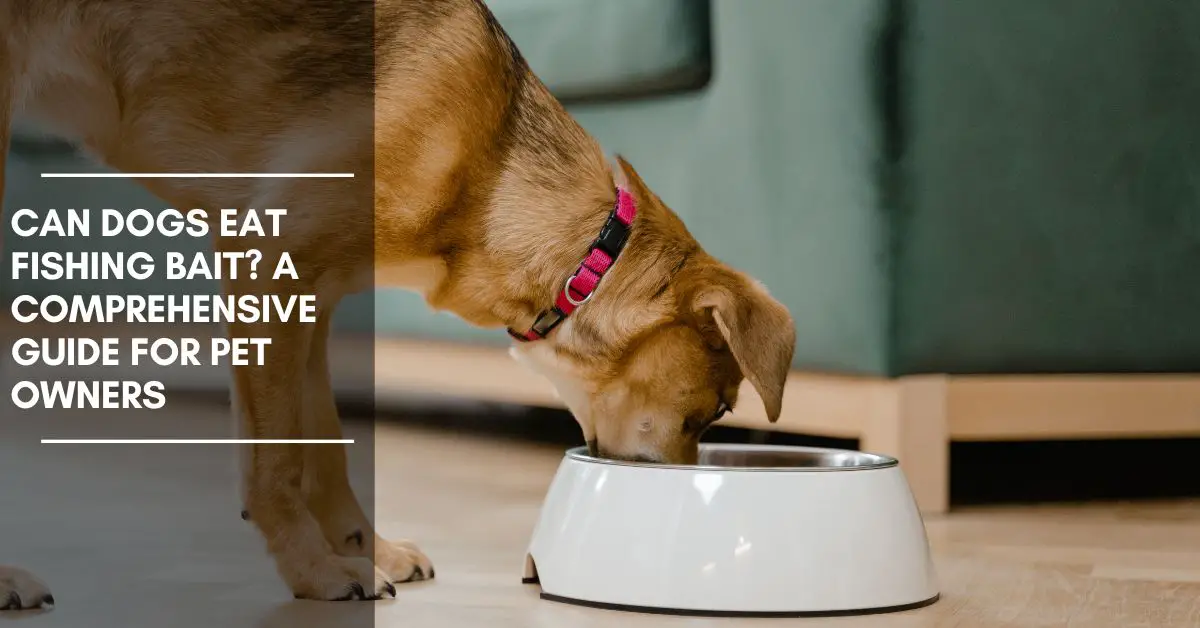Fishing bait can be an exciting lure for our canine companions, but is it safe for them to eat? As a dog owner and an avid angler, I’ve often pondered this question.
In this article, we’ll dive deep into the world of fishing bait and its potential dangers for our furry friends. We’ll provide you with the knowledge you need to keep your dog safe during your fishing adventures. Now, let’s cast our line and reel in the answers!
In short, NO, dogs should not eat fishing bait. Fishing bait can be made from various materials and may contain dangerous chemicals, sharp hooks, or harmful parasites that can pose significant health risks to your dog. Keep reading to find out how to protect your pet from these hazards.
In the following sections, we’ll explore the different types of fishing bait, the risks associated with each, and how to prevent your dog from consuming them. So, grab your tackle box, and let’s get started!
The Different Types of Fishing Bait
Natural Baits
- Live and Dead Bait: These can include worms, insects, minnows, and other small fish. While these may seem like a tasty treat for your dog, they could carry parasites or bacteria that can make your pet sick.
- Cut Bait: Pieces of fish or other seafood used to attract larger fish. Like live bait, cut bait can carry parasites or bacteria, and may also contain fish bones that can be dangerous if ingested by your dog.
Artificial Lures
- Soft Plastics: These synthetic lures mimic the appearance and movement of live bait. While they may not pose the same bacterial or parasitic risks as natural baits, they can be harmful if ingested due to their indigestible materials and potential toxicity.
- Hard Lures: Made from materials like wood, metal, or plastic, these lures often contain sharp hooks and may have toxic paint or coatings. If your dog chews on or swallows a hard lure, it can cause serious injury or illness.
Hazards of Fishing Bait for Dogs
Chemical Dangers
Many artificial lures contain toxic chemicals like lead, which can lead to lead poisoning if ingested by your dog. Additionally, the paint or coatings on some lures may be harmful if ingested.
Physical Risks
Fishing hooks, fish bones, and other sharp objects found in fishing bait can cause injuries to your dog’s mouth, throat, or gastrointestinal tract if swallowed. This can lead to life-threatening complications and may require surgery to remove the foreign object.
Parasites and Bacteria
Live and dead bait can carry harmful parasites and bacteria, such as salmonella, which can cause serious illness in your dog if ingested.
Preventing Fishing Bait Ingestion
- Store Bait Properly: Keep all fishing bait out of your dog’s reach in a closed container or tackle box.
- Supervise Your Dog: When fishing with your dog, keep a close eye on them to ensure they don’t come into contact with the bait.
- Use Dog-Friendly Lures: If possible, opt for non-toxic and dog-safe lures to minimize the risks associated with fishing bait.
What to Do if Your Dog Eats Fishing Bait
- Assess the Situation: Determine what type of bait your dog consumed and whether any hooks or sharp objects were involved.
- Contact Your Vet: Call your veterinarian immediately to discuss the situation and receive guidance on how to proceed.
- Monitor Your Dog: Keep a close eye on your dog for any signs of distress, pain, or illness. If you notice any concerning symptoms, contact your vet right away.
Conclusion
In conclusion, dogs should never eat fishing bait, as it can pose serious health risks to your beloved pet. By understanding the different types of fishing bait and their potential hazards, you can take the necessary precautions to keep your dog safe during your fishing outings. Always store bait properly, supervise your dog, and opt for dog-friendly lures when possible. If your dog does consume fishing bait, contact your veterinarian immediately for guidance on how to proceed.
FAQs
- Can dogs eat worms used for fishing bait? While worms themselves aren’t typically harmful to dogs, they can carry parasites or bacteria. It’s best to prevent your dog from eating worms used as fishing bait.
- What should I do if my dog swallows a fishing hook? If your dog swallows a fishing hook, contact your veterinarian immediately. Do not attempt to remove the hook yourself, as this could cause further injury.
- Are artificial lures safer for dogs than natural bait? While artificial lures may not carry the same risk of parasites and bacteria as natural bait, they can still be dangerous due to their indigestible materials, toxic chemicals, and sharp hooks.
- Can I use dog-safe lures for fishing? Yes, there are non-toxic and dog-safe lures available on the market. Opting for these lures can help minimize the risks associated with fishing bait.
- How can I keep my dog away from my fishing gear? Store all fishing gear, including bait and lures, in a closed container or tackle box out of your dog’s reach. Always supervise your dog when fishing to ensure they don’t come into contact with any hazardous materials.

